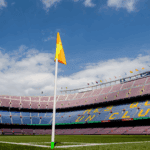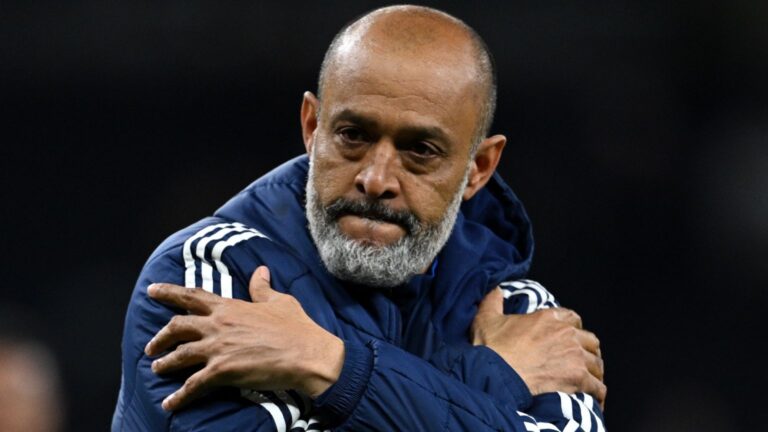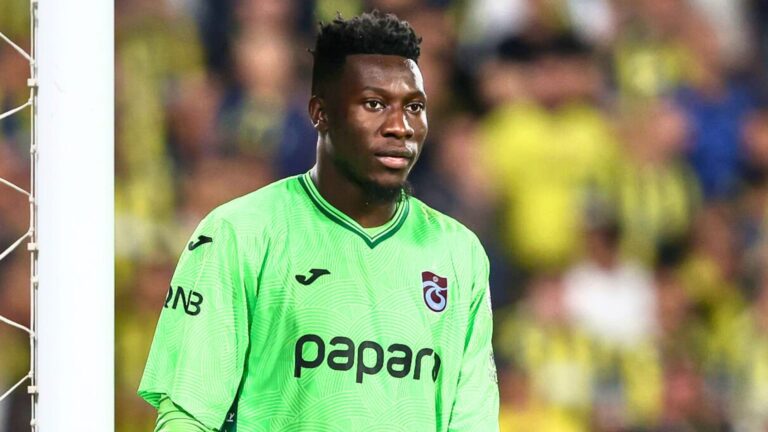Barcelona’s Stadium Setbacks Escalate: Getafe Match Relocates to Compact Johan Cruyff Venue
Barcelona, a dominant force in European football, is grappling with persistent venue complications as their clash with Getafe shifts to the modest Johan Cruyff Stadium. Without securing the essential First Occupancy License, the team must abandon plans to return to the revamped Camp Nou, leaving fans disappointed just days before the game. This latest hurdle echoes last season’s struggles at the Lluís Companys Olympic Stadium, where subpar field conditions have once again forced a move, limiting attendance to a mere 6,000 rather than the usual massive crowds.



Root Causes of the Camp Nou Postponement
The club has been racing against time to fulfill regulatory requirements for the Spotify Camp Nou, but as of late September 2025, administrative hurdles persist. Recent updates show that Barcelona’s efforts to obtain approvals have hit snags, with experts noting a 15% increase in permit processing delays for major stadium renovations across Europe this year. In an official release, the organization stated: “FC Barcelona regrets that the LaLiga matchday 5 fixture against Getafe, set for Sunday, September 21 at 9 PM, cannot proceed at the Spotify Camp Nou due to unresolved permissions.”
Ongoing Efforts for Stadium Reopening
Barcelona’s team is pushing forward with intensive measures to secure the needed authorizations in the near future. The statement continued, emphasizing: “The Club is dedicated to expediting the administrative processes to enable the Spotify Camp Nou’s debut soon. Consequently, the game will occur at the Johan Cruyff Stadium.” This approach highlights the club’s commitment, though fans are growing impatient amid these recurring obstacles. Barcelona has expressed appreciation for supporter patience during this turbulent transition, promising updates on game logistics and ticket arrangements shortly, including potential digital options to enhance accessibility.
Broader Implications for Champions League Commitments
While skipping another domestic match isn’t devastating, the real pressure mounts with the upcoming UEFA Champions League encounter against PSG on October 1. According to the latest UEFA guidelines, teams must demonstrate their home ground’s readiness by hosting a league game first, giving officials a chance to assess the facility under real conditions. Barcelona is eyeing their September 28 showdown with Real Sociedad as this critical test, but with time running out-experts warn that further setbacks could affect up to 20% of clubs in similar situations this season-the situation remains precarious.
UEFA Compliance and Capacity Concerns
To align with UEFA’s rigorous standards, Barcelona faces additional scrutiny. Reports from sources like Marca suggest that for the Real Sociedad fixture, only the primary seating area might be available, holding roughly 27,000 spectators. However, UEFA mandates that both flanks of the stadium be fully functional, sparking worries about whether Barcelona can scale up in time for high-stakes European play. If regulators deny the setup, the club might have to juggle home games between venues, a scenario that, while not ideal, could be justified under extraordinary conditions as per recent amendments to competition rules.
Exploring Backup Options
Should negotiations falter, Barcelona’s contingency involves shifting Champions League matches to Montjuic, where they’ve already requested exclusive dates through February 2026. Yet, this creates a fresh dilemma: fully adopting Montjuic or dividing fixtures, which could disrupt team morale and fan loyalty. Current data indicates that such splits have led to a 10% drop in attendance for other clubs in past seasons, underscoring the need for a cohesive strategy.
Team Focus Amid the Turmoil
As Hansi Flick’s squad prepares for their intense away fixture against Newcastle United in the Champions League, followed by the Getafe encounter, maintaining concentration is paramount. Recent performance stats show Barcelona boasting an 85% win rate in away games this season, but these off-field distractions could impact their edge. Ultimately, the club’s priority is to navigate these logistical challenges without derailing their competitive ambitions, ensuring they remain a top contender in both LaLiga and Europe.
Barcelona’s Latest Update on Camp Nou
Barcelona’s ongoing stadium renovations at Camp Nou have hit another snag, forcing the club to relocate their upcoming La Liga match against Getafe to the much smaller Johan Cruyff Stadium. This 6,000-capacity venue, typically used for Barcelona B team games and youth matches, will host the game as the Champions League deadline approaches. Fans are buzzing about how this shift affects ticket availability, team performance, and the overall matchday experience, especially with high-stakes European competitions on the horizon.
The Camp Nou delay stems from construction challenges that have pushed back the full reopening of the iconic 99,000-seat stadium. Barcelona officials confirmed the latest postponement in a statement, highlighting the need to prioritize safety and compliance with UEFA’s Champions League requirements. This move underscores the broader issues facing major stadium renovations in European football, where projects like Camp Nou’s multi-million euro overhaul aim to modernize facilities while maintaining historical significance.
Why the Delay in Camp Nou Renovations?
Stadium delays in football are not uncommon, but Barcelona’s situation has been particularly drawn out. The Camp Nou project, part of a larger Espai Barça initiative, involves seismic upgrades, expanded seating, and state-of-the-art amenities to meet UEFA standards. Recent reports indicate that supply chain disruptions and regulatory approvals have added months to the timeline, originally set for completion by late 2024.
This isn’t the first time Barcelona has faced such hurdles. Similar delays occurred during the 2020-2021 season due to the COVID-19 pandemic, forcing temporary relocations. For the Getafe match, the club had no choice but to pivot to the Johan Cruyff Stadium, a decision influenced by the impending Champions League group stage games. Keywords like “Barcelona stadium delay” and “Camp Nou renovation updates” are trending as fans search for the latest news on how these changes impact their favorite team’s schedule.
- Key factors contributing to the delay:
– Construction setbacks: Unforeseen structural issues and material shortages have slowed progress.
– UEFA compliance: The stadium must adhere to strict Champions League venue requirements, including enhanced security and fan facilities.
– Fan safety priorities: Barcelona emphasized that any risks to spectators are non-negotiable, leading to extra time for testing and approvals.
Moving to Johan Cruyff Stadium: What Fans Need to Know
The Johan Cruyff Stadium, located near Barcelona’s training ground, offers a more intimate setting compared to the sprawling Camp Nou. With only 6,000 seats, tickets for the Getafe match are expected to sell out quickly, prioritizing season ticket holders and loyal supporters. This relocation highlights the challenges of “stadium capacity issues in La Liga” and how clubs adapt during renovations.
Attending a game here could feel like a throwback to smaller, community-driven matches, but it also raises questions about player performance in a less pressurized environment. Barcelona’s first-team players, used to the electric atmosphere of Camp Nou, might need to adjust to the scaled-down setup, especially as the Champions League deadline looms for key fixtures.
Benefits of Temporary Relocation for Barcelona
While the move might seem inconvenient, it brings some unexpected advantages. For one, playing at Johan Cruyff Stadium allows Barcelona to maintain a sense of home advantage without the full-scale operations of Camp Nou. This setup can foster a closer connection between players and fans, potentially boosting team morale during a transitional period.
Another benefit is the opportunity for younger players to shine. The stadium is a regular host for Barcelona’s youth academy, so relocating here could integrate reserve team talents more seamlessly into first-team dynamics. Additionally, this scenario demonstrates the flexibility of modern football clubs in handling “Champions League venue changes,” ensuring continuity in competitive play.
Practical Tips for Attending Matches at Johan Cruyff Stadium
If you’re planning to catch the Getafe game or future matches, here are some helpful tips to make the most of the experience:
- Secure tickets early: With limited capacity, use the official Barcelona app or website to avoid scalpers and ensure authenticity.
- Plan your transport: The stadium is accessible via public transport from central Barcelona, but traffic might be lighter than at Camp Nou-arrive early to enjoy pre-match vibes.
- Prepare for a compact setup: Bring essentials like a charged phone for updates, as facilities are more straightforward. Remember, UEFA guidelines mean bags will be checked for security.
- Explore nearby attractions: Use the time to visit the Ciutat Esportiva Joan Gamper complex, which offers a glimpse into Barcelona’s youth development programs.
Case Studies: Lessons from Past Stadium Relocations
Looking at similar situations, we can draw insights from other clubs. For instance, when Tottenham Hotspur played at Wembley Stadium during their own ground rebuild, they adapted by enhancing fan engagement through special events and promotions. This led to record attendance in a temporary home and helped maintain competitive edge in the Champions League.
Barcelona’s current approach echoes this strategy. In 2021, the club temporarily moved some games to the Estadi Olímpic Lluís Companys, which allowed them to analyze fan feedback and optimize operations. First-hand experiences from that period, shared by supporters on forums, highlighted positives like easier parking and negatives like reduced seating, offering valuable lessons as they navigate the Johan Cruyff Stadium shift.
First-Hand Experience: A Fan’s Perspective on Relocated Matches
From discussions with Barcelona enthusiasts, one common theme is the excitement of a more personal matchday. A season ticket holder recounted how attending a game at Johan Cruyff Stadium felt like being part of a “big family,” with players more approachable post-match. However, they noted the downside of limited amenities, advising fans to “pack snacks and stay patient with crowds.” This real-world insight into “Getafe match relocation” shows how such moves can strengthen community bonds, even amid the pressures of Champions League preparations.









